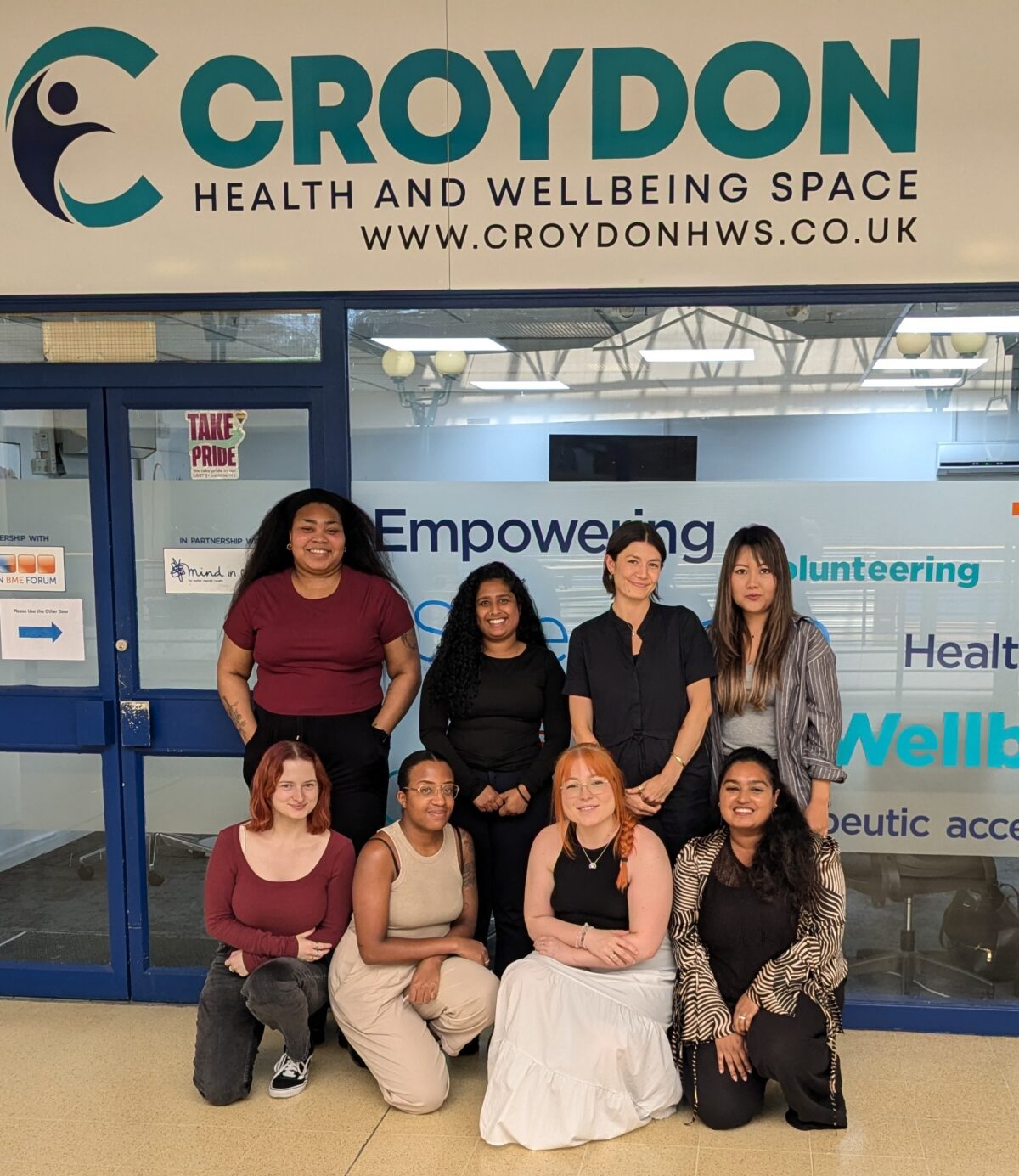Written by Mya Darji:
I spent a week shadowing the advice and psychology teams to find out what work they do to help the people of Croydon. Here’s what I learnt:
Upon entering the Croydon Health and Wellbeing Space you can immediately feel that you may talk to the staff about anything. In just a three-minute wait at their reception, I overheard clients comfortably discussing their situations regarding housing, bills and bereavement (amongst other issues listed on their website) with the more-than-helpful advice team on tables nearby. Their person-centred approach means that they were not only helping these clients tackle their issues head-on through practical and knowledge-based advice but were also seeking to identify any underlying issues that may affect their mental or physical health. From there, they can provide the right information or help, as well as signpost to more specialised help for specific needs – for example their onsite psychology team for specialised mental health support.
I quickly understood that it required a very special type of person to work at such a space. In just one month, the space can expect a footfall of over 500 with one team member saying a busy morning looks like “three people on reception, the phone ringing and sixteen clients back-to-back.” Being versed on so many issues and having the language to discuss them in an empathic and helpful way is a complex and emotionally demanding task. Not to mention the inner whiplash of seeing different clients with different situations over and over again. I was repeatedly impressed by the team’s patience and attentiveness when it came to each client’s individual needs despite this. These feelings were only reinforced when I noticed firm and realistic discussions about the ways in which they could help. When asked about their attitudes to talking with clients, multiple team members stressed the importance of ‘meeting people where they’re at’ and think of themselves as a tool for the service user, proving their commitment to a person-centred approach. I felt comfortable that every client was treated fairly and should not fear rejection or feel that they are unable to be helped. The team welcomed everyone no matter who they are or what their situations are. With an important service like this one relying on the personability and empathy of its team members, I felt assured that they went above and beyond to meet that requirement.
The importance of the space was revealed to me through many different avenues. Being increasingly in demand, the manager spoke to me of the increase in client intake over the two years since the space’s establishment. On one hand this may be due to its escalation in popularity and reputation as a safe space. On the other, it may show a bigger issue at hand. A portion of the space’s clientele is made up of individuals who have fallen through the gaps of other services; the council, their GPs, community health services, care coordinators and social prescribers – just to name a few. In fact, one morning when I was shadowing the reception, two gentlemen came in after consecutively being redirected by council staff, to the Health and Wellbeing Space, for help with form filling. Issues such as underfunding in other services make the space more important as a safety net for those who need help.
Another area of importance is the space’s service of psychological support. The waiting time for trauma therapy can be up to two years under the CIPTS (Croydon Integrated Psychological Therapy Service). Over that length of time, the client’s mental health may drastically get worse and require more help from other services, possibly putting pressure on A&E instead for example. With a range of services from group therapies to one-to-one sessions, the onsite psychology team are a unique preventative power. They catch issues earlier on than statutory services and provide clients with instant specialised help. All of this takes pressure of other areas in the system. The same can be said for every discipline of the team, advice, recovery and clinical.
The Health and Wellbeing Space also makes a strong effort to be accessible. Clients may call or email for support if they are not able to come in due to mental, physical or situation-dependent reasons. You can also enter with discretion as the space is located within a shopping centre. As well as this, many services such as the council have moved online for things like form filling. Some clients are unable to access the internet or struggle when it comes to being online, the face-to-face aspect of the space is extremely helpful here. Its accessibility also takes into account that some clients may present in inconvenient ways to other services. This is where person-centredness really comes to fruition.
Being both an important and busy job which aims to be accessible to all, means all help and good spirit is valued. I finished the week filled with gratitude for the fact that such a place exists.
“If you want to be a part, you can volunteer to help us on reception or form filling through the Mind in Croydon site.”
– Message from the manager


